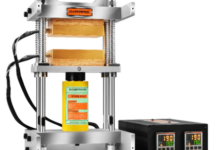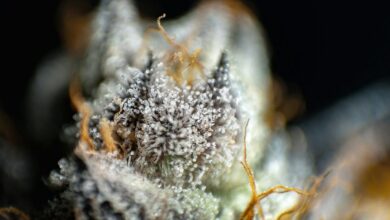What To Know Before Considering Cannabis for Epilepsy Management

Exploring alternative treatments is common for those living with complex neurological conditions. For individuals seeking new avenues for seizure relief, cannabis-based approaches are now being evaluated for their potential role in modern epilepsy care. While traditional therapies remain foundational, some patients are seeking additional support beyond conventional medications. Understanding how cannabis interacts with the brain’s signaling pathways can help determine whether it might offer symptom relief or seizure reduction under medical supervision. This growing curiosity has led some to consider cannabis for epilepsy relief in Annapolis, especially after understanding the potential of cannabis in treating epileptic seizures.
Cannabis and Seizure Activity
Cannabis interacts with the body’s endocannabinoid system, which plays a role in regulating nerve activity and inflammation. In epilepsy, abnormal electrical activity in the brain leads to unpredictable seizures. Some cannabis compounds, particularly cannabidiol (CBD), may have a stabilizing effect on neurons by reducing excitability and inflammation. Medical-grade cannabis formulations are carefully dosed and monitored, ensuring that the psychoactive compound THC is either minimized or balanced with non-psychoactive compounds like CBD to reduce the risk of side effects. This is critical, especially for individuals with complex seizure disorders who may already be managing multiple medications.
See also: How Fast Does Cbd Tincture Kick in
Treatment Considerations for Epilepsy Patients
Before incorporating cannabis into an epilepsy management plan, several clinical and personal factors should be considered. Patients should discuss the potential benefits and risks with their healthcare providers, especially if they are already on anti-seizure medications. Some compounds in cannabis may affect the metabolism of these drugs, leading to changes in effectiveness or side effects. Additionally, not all patients will respond the same way. While some individuals may notice a reduction in seizure frequency or severity, others may experience little to no change. The type of epilepsy, underlying health conditions, and individual endocannabinoid system sensitivity all play a role in the outcome. Clinicians can help navigate these variables with tailored strategies.
Medical Insight and Clinical Research
Early research has sparked interest in the role of cannabinoids in epilepsy treatment. In fact, many families and patients first became aware of its potential after hearing stories of children with rare seizure disorders who experienced a significant reduction in symptoms after starting CBD therapy. Ongoing clinical studies continue to refine our understanding of which cannabis-derived products are most effective, at what doses, and for which types of seizures. Understanding the potential of cannabis in treating epileptic seizures can help patients and caregivers make informed decisions about incorporating it into a broader treatment plan. This type of clinical insight underscores the importance of medical oversight when considering cannabis-based interventions. For those seeking established treatment protocols, the Mayo Clinic provides comprehensive details about various epilepsy therapies, including surgical interventions, vagus nerve stimulation, and medication options. While cannabis may not replace these approaches, it could complement them in select cases.
Legal and Regulatory Framework
Access to medical cannabis is regulated at the state level, and qualifying conditions can vary. Patients considering cannabis for epilepsy must ensure they are working within legal parameters and are obtaining products through licensed medical channels. This provides both safety and compliance, as unregulated products carry significant risks related to dosage inconsistencies and the presence of contaminants. Professionally guided cannabis treatment plans also help patients track their responses, adjust doses carefully, and evaluate effectiveness over time. These plans are often developed by specialists familiar with neurological conditions and cannabinoid pharmacology.
Conclusion
Cannabis is increasingly recognized as a potential therapeutic tool for select epilepsy patients, especially when conventional treatments fall short. With proper medical guidance, regulated dosing, and ongoing clinical research, patients can make informed decisions about integrating cannabis into their epilepsy care plan.






